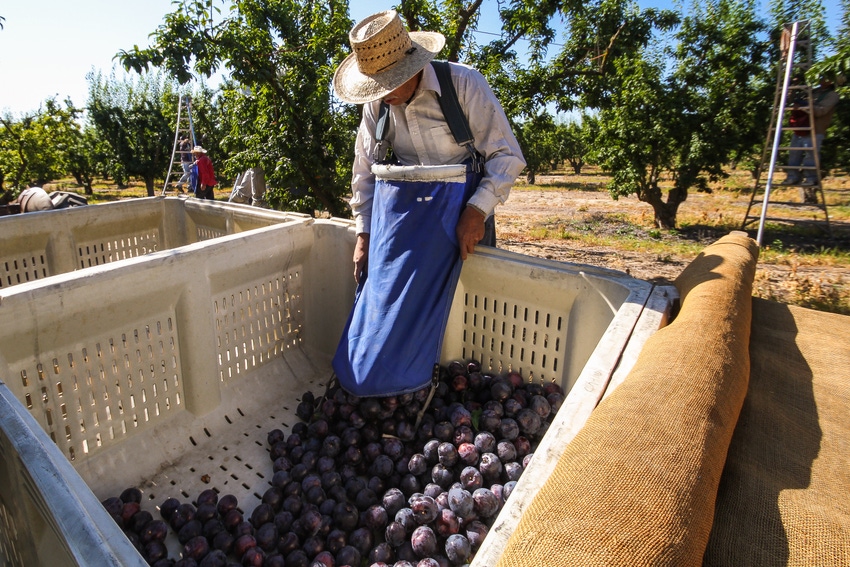
California farmers will face a growing list of proposed worker safety rules in 2019 that will address manure pits, nighttime illumination, indoor heat and a growing problem each summer of wildfire smoke throughout the state.
Manure pits on dairies and other livestock operations, and the new lighting rules were proposed by California Department of Industrial Relations (CalOSHA) inspectors resulting from accident investigations, according to David Hornung, heat and ag program coordinator with CalOSHA. The agency is looking closely at agriculture as there were about 19,000 recordable workplace injuries last year in the sector.
Addressing the annual AgSafe Conference recently, Hornung says four of the six-leading citation offenses farming operations receive by state safety inspectors relate to heat illness prevention.
Topping this list is the required written program farmers must have to defend against heat illness and what workers are required to do should they or a co-worker exhibit symptoms of heat illness. Not having a written plan is a costly violation. Inspectors will ask employees questions to ensure they’ve been trained to spot heat illness and know what to do when they identify it in a coworker.
Hornung emphasized the word “effective” in the heat regulations, meaning that employees can’t simply sit for a class and not retain the information; they must be able to react appropriately, which is why he says his inspectors will question employees on the signs and symptoms of heat illness during their inspections.
Indoor heat rules came about with the passage of a new state law that changes the labor code, he says. The rule, which is still in draft form, sets a standard of 82 degrees for indoor work environments. Among others, this will impact cotton gins, which could then be required to provide a “cool off” room for employees to take a break.
Nighttime illumination is another issue the state wants to address. This became an issue with the filing of an internal OSHA form that allows inspectors to propose new regulations based on what they are seeing in the field, Hornung says.
The idea is to set a standard for lighting when workers are within 25 feet of vehicles or equipment.
AgSafe and the Western Agricultural Processors Association continue to watch this issue, saying the current proposals for minimum light levels far exceed standard lighting on work sites that is enough to see and read documents.
Other hazards
Wildfire smoke is a new issue for regulators as several of the state’s most catastrophic fires in history happened in the past two years, bringing with them horrific air quality conditions that blotted out the sun and caused health problems for everyone in the heavy smoke zones.
In a petition submitted by the California Labor Federation, Worksafe, and California Rural Legal Assistance, a request was made to regulate outdoor activities when air quality measurements for fine particulate – PM 2.5 – exceeds unhealthy levels, according to the Air Quality Index.
Protecting workers under these regulations could include providing them with dust masks or respirators.
Manure pits or lagoons will likely receive increased scrutiny from state regulators after several deaths between 2001 and 2008 prompted a compliance officer to file a report in 2016 calling for barriers, lighting and signs around lagoons to protect workers.
Last year in California 376 people lost their lives in workplace accidents. Of this, 38 were reported in agriculture.
About the Author(s)
You May Also Like






